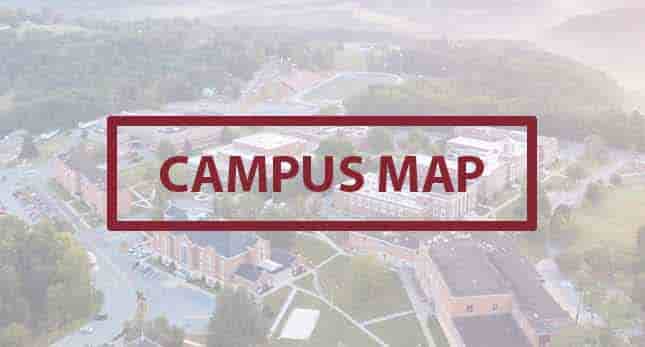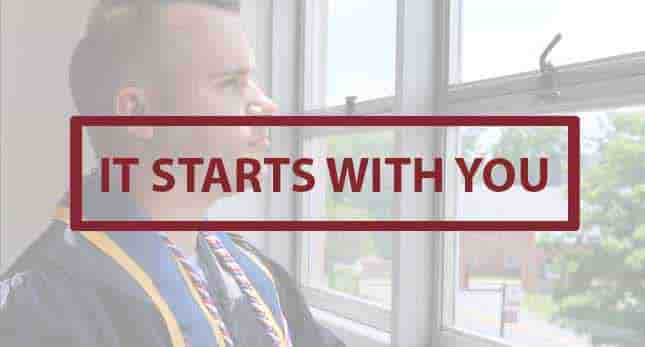The United States is a diverse country with people from many parts of the world. For people of any age and background, being in a new country combines a sense of excitement and anticipation with some fears, loneliness and doubts. Culture is a pattern of beliefs, values, and behaviors shared by groups of people. Cultural differences among groups can be sources of interest, pleasure, and growth. Learning about new and different languages, music, foods, and social customs will enhance your experience. Differences, however, can also lead to confusion about how to behave in different situations and the meaning of others’ behavior. Understanding some common cultural patterns in the United States can ease the transition and help students feel more at ease and a part of things. Understanding another culture does not mean, however, that a person must abandon his or her own ways. Getting acquainted with social and cultural differences is a very important process because it will help you build successful relationships with Americans. The following are some common American customs you will probably encounter. Common Scams that international students face today, as taken from NAFSA: Common-Scams While you are here, we hope that you will meet and spend time with Americans and their families. These suggestions may help you feel more comfortable when you are invited out. The invitation is usually for you only, unless your hosts specifically invite your family or friends. Bringing guests of your own without asking your host’s permission is considered impolite. The written invitation will include the date, time, place, and description of the occasion. You should always answer a written invitation, especially if it says R.S.V.P. You may respond by telephone or by email; prompt notice is appreciated. Never accept an invitation unless you really plan to go. If you must decline an invitation, it is enough to say, “Thank you for the invitation, but I am unable to attend”. If an unavoidable problem makes it necessary for you to change plans, be certain to tell the host as soon as possible before the time when you are expected. Make sure you get directions to the place where the event will be held. When accepting an invitation for a meal, be sure to explain to your host if there is anything you are not supposed to eat. This courtesy will help the host to plan for food and beverages that everyone can enjoy. If you must refuse something after it has been prepared, refuse politely. Never hesitate to ask for any food on the table: “Would you please pass the rolls?”, since asking for more food is considered to be a compliment to the host. Being on time is very important in American culture. Americans put a great deal of emphasis on personal cleanliness. The standard of personal cleanliness that an individual maintains will determine (to a large extent) how he or she is accepted into society. Most Americans are very sensitive to the smells and odors of the human body-sometimes their own, but especially someone else’s. For this reason, most Americans bathe once a day, and sometimes more during hot weather or after strenuous exercise. They use deodorants and antiperspirants, and they wash their clothes frequently. Most Americans are also very concerned about having clean hair and fresh breath. The most important thing to understand about Americans is their devotion to individualism. From childhood, they have been trained to consider themselves as separate individuals who are responsible for their own situations in life and their own destinies. They have not been trained to see themselves as members of a close-knit, tightly interdependent family, religious group, tribe, nation, or other collectivity. Closely associated with the value they place on individualism is the importance Americans assign to privacy. Americans assume that people need some time to themselves or some time alone to think about things or recover their spent psychological energy. Americans generally consider themselves to be frank, open, and direct in their dealings with other people. Americans will often speak openly and directly to others about things they dislike. They will try to do so in a manner they call “constructive”, that is, a manner which the other person will not find offensive or unacceptable. If they do not speak openly about what is on their minds, they will often convey their reactions in nonverbal ways (without words) through facial expressions, body positions, and gestures. Americans are not taught that they should mask their emotional responses. Their words, the tone of their voices, or their facial expressions will usually reveal when they are feeling angry, unhappy, confused, or happy and content. They do not think it improper to display these feelings, at least within limits. They are much less concerned with avoiding embarrassment to themselves or others than most other cultures. To Americans, being honest is usually more important than preserving harmony in interpersonal relationships. While many Americans are fairly open and warm people who are quick to make new acquaintances, their mobility and sense of individualism mean that their relationships are often casual and informal. This is not to say that Americans take friendship lightly. It just means that while Americans know a lot of people, their lasting friendships are often few. Comparatively, women in the United States are generally less inhibited than women from other countries. They are not usually shy with Americans or international visitors. Their relaxed and more independent attitude may be misunderstood by people whose native culture is more restrictive of women’s activities. It is not unusual, for example, for unmarried women to live by themselves, to share living space with other single women, or to go to public places unescorted. When inviting your family to visit you in the United States, it is important to research which documents and procedures are necessary for your specific situation. The International Center only provides letters of invitation to family members for an undergraduate student’s commencement ceremony. Please use this as a guide to help you as you invite your family to visit: The intended use of a social security number is for employment. Students who have been employed on-campus or students who have received an Employment Authorization Document (EAD) are eligible to obtain a social security number. The following documents are required to obtain a social security number: Social Security Administration The following documents must be presented to the West Virginia Department of Motor Vehicles (DMV) in order to obtain a West Virginia Driver’s License or State Identification Card: 198 Davis St. After you arrive at the DMV, all of the above listed documents must be faxed to the Bureau of Citizenship and Immigration Services by the DMV for verification. Therefore, you should plan to arrive at the DMV before 2:00 pm if you want to receive your license or learner’s permit on the same day. If you do not arrive before 2 p.m., you may be asked to return the next day. You have the choice between a Not for Federal Use driver’s license or ID card, or a REAL ID/For Federal Use card that contains a gold star, indicating that the card meets full federal requirements for future use at airports and other designated federal facilities and uses nationwide. In order to obtain license plates for a car, you will be required to show proof that you have auto insurance. It is illegal to drive without car insurance. Many companies offer a variety of auto insurance policies, so you should “shop around”. When you have selected a policy, read it carefully before signing any documents.Living in the U.S.
Social Invitations
Hygiene
Individualism and Privacy
Directness and Assertiveness
Friendship and Dating
Which American Holidays are Important
Visa Waiver Program (VWP)
Visitor Visa
Nearest Location:
3014 E. Cumberland Road
Bluefield, WV 24701Hours of Operation:
Nearest location for the DMV:
Princeton, WV 24740Hours of Operation:
Auto Insurance
Resources for Living in the U.S.
The United States is a diverse country with people from many parts of the world. For people of any age and background, being in a new country combines a sense of excitement and anticipation with some fears, loneliness and doubts. Culture is a pattern of beliefs, values, and behaviors shared by groups of people. Cultural differences among groups can be sources of interest, pleasure, and growth. Learning about new and different languages, music, foods, and social customs will enhance your experience. Differences, however, can also lead to confusion about how to behave in different situations and the meaning of others’ behavior. Understanding some common cultural patterns in the United States can ease the transition and help students feel more at ease and a part of things. Understanding another culture does not mean, however, that a person must abandon his or her own ways. Getting acquainted with social and cultural differences is a very important process because it will help you build successful relationships with Americans. The following are some common American customs you will probably encounter.Living in the U.S.
Resources for Living in the U.S.


